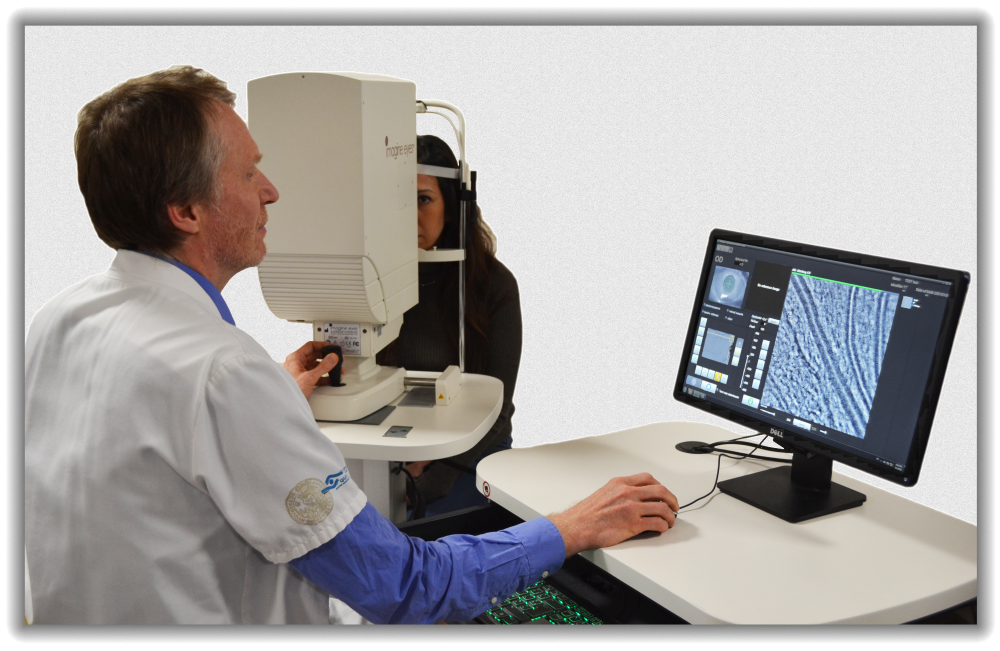New publication highlights the benefits of Adaptive Optics retinal imaging in retinal degeneration and chronic vascular conditions
Ophthalmic examinations using adaptive optics reveal structural details in the retina that remain invisible with conventional imaging. Prof Michel Paques and his team at France’s National Ophthalmology Center in Paris recently published an article which explains how adaptive optics has provided relevant new insights on the retina in a wide range of diseases.
Among the adaptive optics devices introduced in this article, the rtx1 AO retinal camera enables clinicians to acquire images at the cellular level in only a couple of seconds. Its user-friendly software also provides tools for quick and straightforward follow-up analysis, which leads the authors to write:

“The current technological level of robustness and the possibility to obtain quantitative biomarkers already permits the integration of AO in large scale
trials in AMD, arterial hypertension and vasculitis”
By putting into perspective the results of several clinical studies, the authors highlight the benefits of adaptive optics not only in retinal
diseases, but also in widespread chronic conditions which affect
the retina :
“Adaptive optics ophthalmoscopy can contribute new and complementary information to other ophthalmic imaging techniques, and should form part
of a comprehensive eye exam”
Upcoming Seminar : Autumn course on Adaptive Optics Imaging, October 8th– 9th 2018, in Paris, France